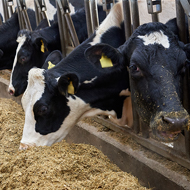
Association voices concern over new Agricultural Policy.
The BVA has called on the Government of Northern Ireland to ensure that vets and the vet-farmer relationship remain central to its future farming policy.
The Association is urging the Department for Agriculture, Environment and Rural Affairs (DAERA) to keep vets at the heart of discussions to meet the key outcomes outlined in the Future Agricultural Policy Framework Portfolio.
The portfolio announced on Tuesday (24 August) lays out a vision for the future of farming support in Northern Ireland. It explores how a future farming regime can meet key outcomes around productivity, sustainability, resilience and supply chain functionality.
But the BVA has expressed concern that the portfolio fails to mention the role of veterinary professionals in helping to achieve these aims. In its contribution to the original future farming consultation, the Association recommended that vets should be referenced because of their significant role in securing positive health and welfare outcomes for animals and public health.
Mark Little, BVA NI branch president, said: “We’re pleased that the Minister recognises that our future agricultural regime must promote animal health and welfare and public health, but it’s disappointing that this week’s portfolio makes no mention of the role of the veterinary profession in achieving this.
“An opportunity has been missed to capture from the outset the central role of veterinary expertise in achieving the stated aims of increasing productivity, enhancing environmental protection, and improving resilience.
He continued: Agriculture faces unprecedented challenges, but we should all be seizing the chance to help shape a positive future, and it’s essential that vets and the vet-farmer relationship are at the heart of it. We have fed back our initial views to DAERA, and will ensure that the valuable part that vets have to play in making this vision a reality comes through strongly when we respond to the forthcoming public consultation.”



 The Veterinary Medicines Directorate (VMD) is inviting applications from veterinary students to attend a one-week extramural studies (EMS) placement in July 2026.
The Veterinary Medicines Directorate (VMD) is inviting applications from veterinary students to attend a one-week extramural studies (EMS) placement in July 2026.